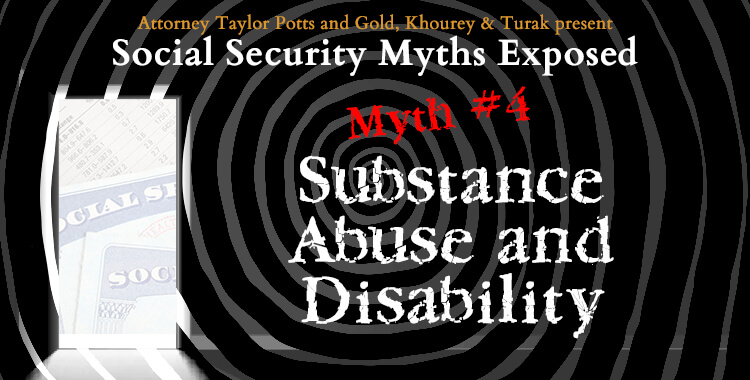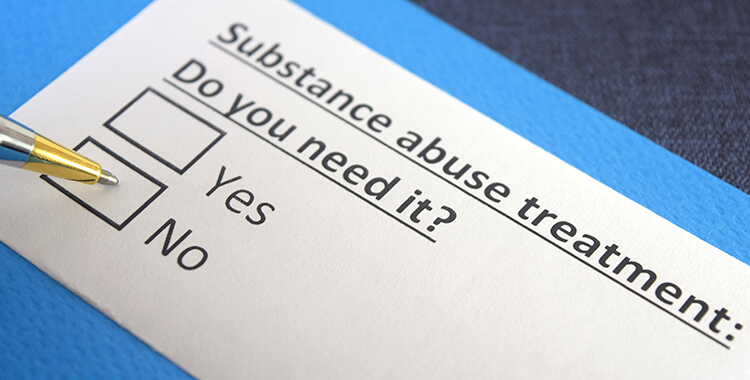
Every Tuesday, Social Security Attorney Taylor Potts will expose some of the more frequent myths surrounding Social Security Benefits. Be sure to “like” our Facebook page and stop back each week as Attorney Potts takes you through The Twilight Zone – Social Security Style. If you have questions about Social Security Disability or VA Disability benefits, contact Attorney Taylor Potts at (304) 845-9750.
Myth #4: Substance Abuse and Disability
You are about to enter a land beyond what many of us know. A land that could almost be considered a different dimension. A dimension of medical records, vocational classifications, administrative law judges, and functional limitations. Strap yourself in and get ready as we enter the twilight zone of Social Security Disability benefits.
WARNING! PROCEED WITH CAUTION
Social Security Disability can be a strange and confusing land, but allow me to be your guide as we (hopefully) shed some of this mystery and bring it back into the realm of reality. In this series we will take some of the most common (12 to be exact) misunderstandings, or myths, about Social Security Disability Insurance and Supplemental Security Income and help explain why these myths are not necessarily true and why the myths became so pervasive.
DOES SUBSTANCE ABUSE = DISABILITY?
Our fourth myth to explore is substance abuse’s impact on Social Security Disability benefits. Oftentimes I hear people say that they know someone who has been awarded disability benefits because they are an alcoholic, because they can’t keep a job due to drug use, or some other version of this statement. Like many of the myths we have discussed so far, this is simply not true. The Social Security Administration does not and cannot find someone disabled due solely to drug or alcohol dependency or addiction. Thus, if the only basis for a claim is addiction issues, the claim will be denied as a matter of law by Social Security.

However, this has not always been the case. Until 1996, substance abuse was treated as a listing criteria and was enough for an individual to be granted disability benefits. You see, in 1994, laws began to change and more and more restrictions were placed on substance abuse claims. These new rules only allowed for three years of benefits for substance abuse disabilities and also listed strict requirements for treatments in order for recipients to qualify and continue to receive disability benefits. Then in 1995, we experienced another change in the law. This time the law excluded any benefits to be paid for claims that only dealt with substance abuse issues. While many other changes and tweaks have occurred relating to substance abuse in disability claims, the 1995 law continues to basically be the case today.
SUBSTANCE ABUSE AND THE EFFECT ON CLAIMS
However, that does not mean substance abuse issues completely prevent an individual from obtaining Disability Insurance, Supplemental Security Income, or other Disability benefits. Substance abuse itself cannot be the only reason for disability, but there are instances that you can obtain disability benefits despite a substance abuse problem or prior substance abuse problem.
Eligible with Substance Abuse
First, as long as the substance abuse issue is not the cause of a disabled person’s condition, sickness, or injury, a claimant can have a substance abuse issue and could still obtain disability benefits. Thus, someone who is disabled due to spinal disorders, a limb amputation, or some other physical limitation, and has a substance abuse problem, could still be found disabled due to the physical limitation because the substance abuse does not impact the severity of the disability. The key question would be whether the other illnesses, injuries, or sicknesses are severe enough to be disabling without considering the substance abuse problem.

Second, long term health problems that result from substance abuse can be considered by Social Security and may lead to approval of disability benefits. For example, severe cirrhosis of the liver caused by years of drinking by an alcoholic may be a disabling condition if it cannot be improved. However, this can only be determined once an individual has ceased the alcohol or drug abuse and the condition has stabilized. Thus, allowing Social Security to review and evaluate the condition without aggravating factors. However, the mere fact that the condition was caused by prior substance abuse is not something that should prevent someone from applying for benefits.
Not Eligible with Substance Abuse
If the substance abuse issue is the cause of the disability, then it is likely you will be denied disability benefits. While substance abuse issues could include physical impairment, they predominantly involve mental and neurological health problems.
For example, if an individual suffers from seizures as a result of alcoholism, it is likely that the Social Security Administration would find that continued drinking impacts the severity of the seizures and would deny benefits. Another common example is illegal drug use and mental health disorders, such as bipolar disorder. In these situations, the Social Security Administration will deny benefits because the substance abuse issues worsen the underlying condition, thus preventing the Social Security Administration from being able to properly evaluate the condition.

Basically, the Social Security Administration would find that your disabling condition could or would be improved to the point that it was no longer disabling if you were to stop the substance abuse. This determination would be made by a review of the Social Security Administration through a drug/alcohol addiction evaluation (DAA).
NAVIGATING A CLAIM WITH SUBSTANCE ABUSE QUESTIONS?
The question Social Security will ask in every claim that includes concerns over substance abuse is, “would the sickness, injury, or other condition improve to a point where it would not be disabling if there was no substance abuse?”
If the answer is yes, then the Social Security Administration will likely deny the claim due to substance abuse. If the answer is no, then benefits can still be awarded. This does not mean Social Security is always good at making this determination.
WE CAN HELP!
If you have been denied Social Security Disability Insurance, Supplemental Security Income, or other benefits or are considering filing for disability benefits, don’t give up! Contact us today at (304) 845-9750 for a free consultation. Your claim is not a lost cause.
At Gold, Khourey & Turak, we have the experience and knowledge to properly pursue your disability benefits claim. We know what arguments to make to ensure reviewers and administrative law judges properly evaluate your claim, and what medical records you need to prove certain things within your claim.
DO NOT WAIT, let us help you obtain the benefits you are entitled to.
Our consultations are free, and there is never a fee until we obtain benefits for you.


